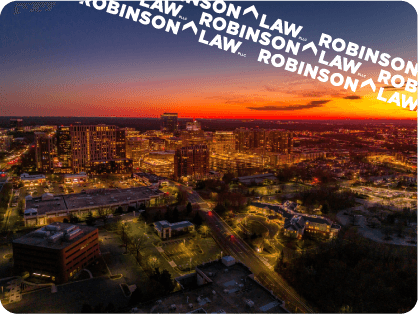Court Denies Defendant’s Motion to Suppress in Recent Virginia Gun Case | Robinson Law, PLLC
Recently, a state appellate court issued a written opinion in a Virginia gun case discussing whether a detective’s warrantless search of a phone violated the defendant’s protection against unreasonable searches and seizures. Ultimately, the court concluded that the search was legal and that the motion to suppress was rightfully denied by the lower court. The case illustrates when evidence obtained from a detective’s warrantless search can still be used in the trial.
The Facts of the Case
According to the court’s opinion, while attempting to retrieve his phone from inside the restaurant, the defendant approached a waitress in a very hostile manner. A private security guard stepped in front of the defendant, and the defendant eventually urged his friend to grab a gun from the car. The security guard drew his own weapon and asked the individual to drop his firearm. The individual put down the gun. Defendant then picked up the firearm and began firing his gun. The security guard fired back and struck the vehicle, prompting the defendant and his friend to drive away. The defendant did not return.
A detective later recovered a cell phone at the restaurant and without a search warrant, the detective went into the phone settings to find the phone’s identification serial numbers. The detective did not search any other part of the phone. Using the serial number, the security guard was able to find the name and photograph of the defendant. The defendant had an additional cell phone, which the detective used to track the defendant’s location and arrest him.
Defendant filed a motion to suppress evidence obtained as a result of a search of his phone due to the detective’s failure to obtain a search warrant. The trial court denied the motion to suppress because of the defendant’s decision to leave the premises and thus abandon the phone.
The Appellate Court’s Decision
On appeal, the defendant challenged the trial court’s denial of his motion to suppress, arguing that the warrantless search of his cell phone violated the Fourth Amendment. The court acknowledged that the Fourth Amendment protects individuals against searches conducted without a warrant. However, the Fourth Amendment applies only when the defendant can claim a legitimate expectation of privacy that was invaded. If an individual voluntarily abandons their own property, they no longer have any expectation of privacy. Thus, the abandoned property does not fall under the Fourth Amendment’s protection against unreasonable searches and seizures. A person may be found to have abandoned property by relinquishing physical control of the property.
Here, the court explained that the defendant decided to flee the area, did not return to the restaurant to retrieve his phone, and began using a new phone after the incident. Thus, the defendant’s intent was to abandon the phone since he relinquished physical control of the phone. Additionally, this court determined that in the decision in Riley v. California did not prevent a court from being able to consider whether a phone has been abandoned.
Thus, the appellate court upheld the trial court’s decision, determining that the phone search did not violate the Fourth Amendment and that the court rightfully denied the defendant’s motion to suppress
Have You Been Arrested After Police Searched Your Phone?
If you have recently been arrested and charged with a serious crime after police searched your phone, contact the Virginia criminal defense attorneys at Robinson Law, PLLC. At Robinson Law, our team of dedicated lawyers represents clients who are facing all types of allegations, including Virginia weapons offenses, sex crimes, and drug crimes. To learn more and to schedule a free consultation, call 703-542-3616.

We Defend. We Recover.
You Move Forward
When You Call Robinson.
The use of the Internet or this form for communication with the firm or any individual member of the firm does not establish an attorney-client relationship. Confidential or time-sensitive information should not be sent through this form.
I have read and understand the Disclaimer and Privacy Policy.

Call 703-844-3746 Today
and Get the Help You Need










